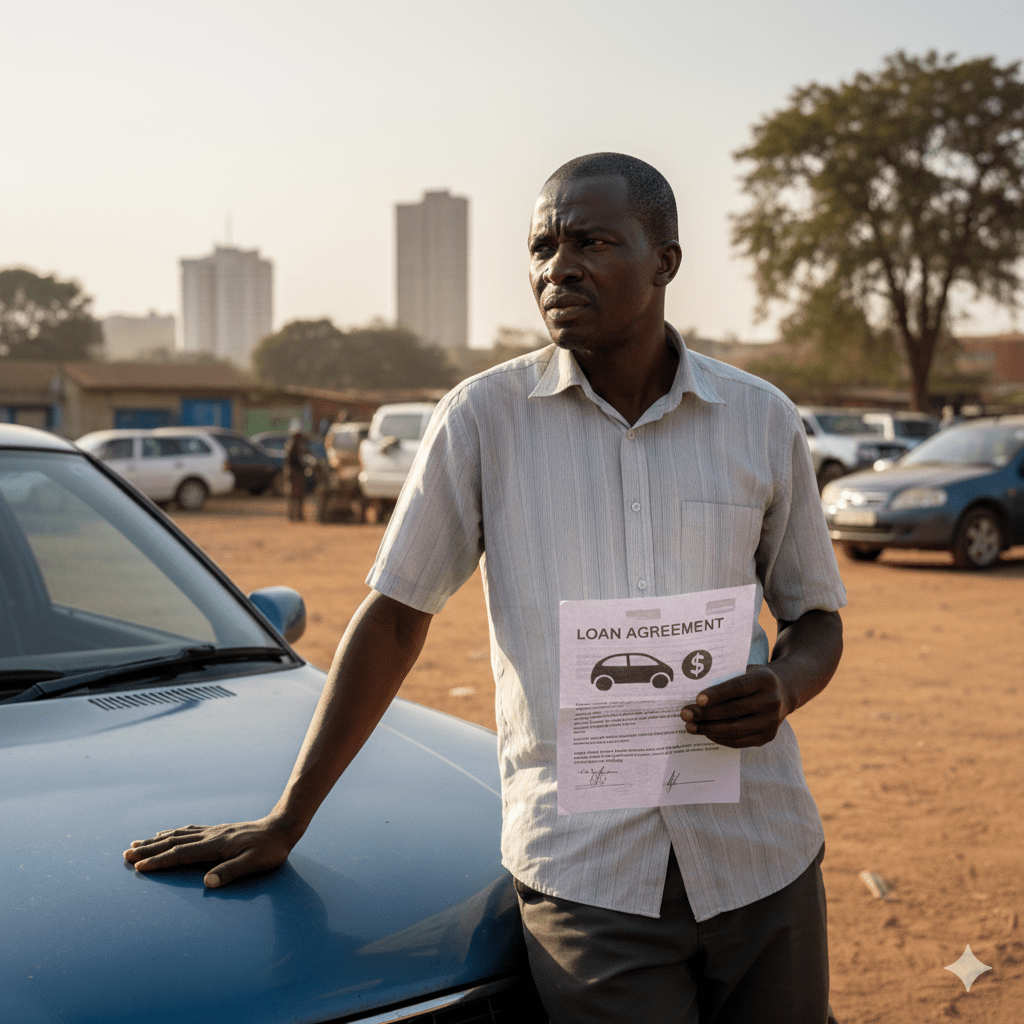Why Some Logbook Loans in Kenya Are So Expensive — and How to Avoid Losing Your Car

Logbook loans can offer fast relief when you need cash urgently. But in Kenya’s market, the loans that seem quickest and easiest to get often turn out to be the most expensive and dangerous.
In this guide, we break down the reasons some logbook loans cost far more than advertised — and how these loans can lead to unexpected repossession. You’ll also learn how to spot red flags and protect your vehicle before you sign anything.
1. Flat Rate vs. Reducing Balance Interest
The cost of a logbook loan isn’t just about the rate — it’s how it’s calculated.
- Flat rate: Interest is charged on the full loan amount for the entire term, even as you repay.
- Reducing balance: Interest is calculated on the remaining principal, reducing over time.
For example, borrowing KSh 200,000 at a 10% monthly flat rate costs around KSh 60,000 in interest over 3 months. A reducing balance model would cost closer to KSh 40,000 — a big difference.
2. Hidden and Layered Fees
Many lenders add charges that aren’t obvious upfront:
- Processing fees (2–5%)
- Vehicle valuation
- Logbook search, NTSA, or legal fees
- Tracker installation
These are often deducted before disbursing the loan. So, you might apply for KSh 300,000, but receive KSh 270,000 — and still owe interest on the full amount.
3. Risk-Based Pricing
Some lenders charge more based on how risky they think you are:
- Older vehicle? Higher rate.
- Used for business (e.g., Uber, boda)? Higher rate.
- CRB blacklisted? Definitely higher rate.
This explains why borrowers with similar cars and needs may receive very different pricing.
4. Regulated vs. Unregulated Lenders
In Kenya, not all lenders are regulated equally:
- CBK-regulated banks follow consumer protection rules.
- Microfinance institutions may be members of industry associations.
- Unregulated lenders operate without oversight — and often charge the highest rates.
Unregulated lenders can legally charge monthly rates as high as 20%, impose rapid repossession, and include hidden terms in their contracts.
5. Why the “Easiest” Loans Can Cost You the Most
Loans that advertise:
- “No CRB check”
- “Instant cash in 6 hours”
- “No paperwork needed”
…often come from lenders who’ve designed the loan to be profitable if you default. They skip background checks because they know they can recover their money — by repossessing and selling your car.
Example:
- You borrow KSh 200,000
- You receive only KSh 180,000 after deductions
- You owe KSh 240,000 after 30 days
- You’re late by a few days — your car is repossessed
These lenders are not just charging high interest — they are banking on you failing.
6. The Repossession Business Model
Some firms make more money from recovering and auctioning cars than from interest:
- Loan is approved with minimum checks
- Terms allow repossession after one missed payment
- Borrower can not pay penalties or towing fees
- Vehicle is sold — often under market value
This is not a loan strategy — it’s an asset recovery strategy.
Red Flags to Avoid
- No repayment schedule offered
- Same-day pressure to sign
- Repossession clauses buried in small print
- “We don’t care about CRB” as a selling point
7. Short-Term Loans and Renewals
Many loans are issued for 1–2 months but with such high monthly charges that borrowers are forced to renew — paying fresh interest and penalties every time. This leads to a cycle of debt and often vehicle loss.
8. How to Avoid Losing Your Car
- Ask for a full repayment schedule in writing
- Read all penalty and repossession terms
- Check if the lender is registered or licensed
- Research the company through real user reviews
- Walk away if they push you to sign on the same day
Final Word
The most expensive logbook loans in Kenya are not the ones with the highest rates — they are the ones that look easy but are designed for repossession.
Protect yourself by slowing down, reading the fine print, and choosing a lender that’s transparent, regulated, and fair. Because fast cash isn’t worth it if you lose your car.
Remember!
If you need financial assistance, contact us through our contact form, call us on +254791573231 or visit one of our branches across Nairobi, Kiambu, Machakos, and Kajiado counties to explore your financial opportunities




Comments ()